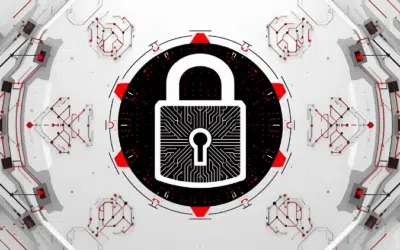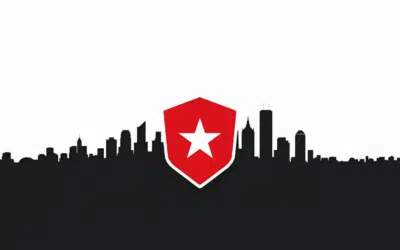No business, big or small, can afford to overlook their network security.
According to Forbes, 87% of small business owners don’t think they are at risk of being hacked. In reality, almost half of all businesses will be the victim of a cyberattack.
Simply put, if you’re connected to the internet, you’re at risk of hacking. To keep your organizational data safe, you need to maintain a network security plan through 4 core components.
Component 1: Employee Education
The best network security strategies include ongoing employee education. Hackers are continually evolving their tools and tactics. To beat them, you need to keep your employees up-to-date on current cyberthreats and on end-user security best practices.
For instance, you can hold semi-regular training seminars to go over the latest security threats. You can discuss what to look out for, what to do in case of a virus, and what the process is in case of a data breach.
Proper password usage can be a constant struggle for people. Everyone must manage multiple accounts at different times of the day. As a result, many people frequently use the same simple passwords over and over to save time.
Did You Know? The most popular password, making up nearly 17% of the 10 million passwords the company analyzed, was “123456.”
Despite the inconvenience, users need to have separate passwords for each account, and each password needs to contain special characters and upper and lower case letters. Offer your employees password managers to simplify this process.
Component 2: Wi-Fi Protection
If your business relies on a Wi-Fi network, you need to make certain that no unauthorized person can access it. You can set up your access point or router to hide the name of the SSID, or Service Set Identifier, and make certain your system is password protected to thwart the casual hacker.
Related: The Cost of a Compromised Network
Be sure to separate it from your primary network to avoid injection attacks from potentially unprotected endpoints. You can segregate your network to keep your networks safe and sound.
Additionally, you can get a higher level of security by using a virtual private network. When you use a VPN, your company’s data goes through the provider’s server, which keeps your employees passwords and browsing history safe from hackers through a secure, encrypted tunnel.
Related: 7 Tips on Boosting Your WiFi Signal
Your data will remain encrypted while keeping your network hidden from public view. Hackers look for easy targets, and a VPN makes your information hard to access.
Component 3: Two-Factor Authentication
Experts say that many of the most infamous cases of hacking could have been prevented by two-factor, or 2FA, authentication. Instead of relying simply on passwords, you can set up your systems to require additional information for a log-in. \
Related: Knowledge is Power and Strength Against Cyber Security Threats
That can include an app-generated code or a physical security key. A small business can easily and affordably add this type of security, which makes hacking your business accounts quite a bit more difficult.
Component 4: Network Testing
Consider hiring an expert IT company that will test your network’s vulnerability. In a way, you are hiring tech experts to hack your systems. By doing so, you can identify the weaknesses in your network and then correct them.
After all, only tech experts can outwit other tech experts.
You can also have these security companies launch simulated phishing attacks aimed at your employees to see how they respond. If your employees are not using best practices, you can have them coached in better security measures.
Need Help? Turn to Axxys
Lapses in network security can cost your company thousands or even millions of dollars, harming your business’s profitability, productivity, and reputation. Often, small businesses are favorite targets of hackers because they have weaker security.
By employing a few proven methods, you can protect your business from these harmful data breaches.
We can help your business stay protected against these attacks by performing security assessments, providing you with active threat monitoring, keeping your backups secure, and more.
Questions? Comments? Concerns? No problem – reach out to us. We’re happy to help.








